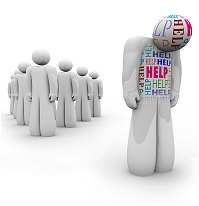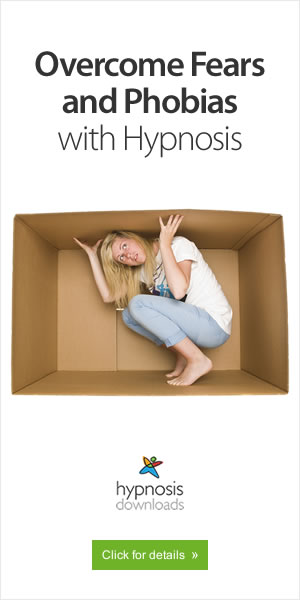Social Phobia
 Social phobia is also known as social anxiety disorder and are one and the same condition. It’s best described, according to the NIMH, as “an intense, persistent fear of being watched and judged by others”. It goes beyond that simple shyness that we all experience from time to time. Instead it’s an intense fear of specific or all social situations and doing everyday things in front of people. This could mean worrying about speaking to people, dreading social events, avoiding eye contact and low self-esteem.
Social phobia is also known as social anxiety disorder and are one and the same condition. It’s best described, according to the NIMH, as “an intense, persistent fear of being watched and judged by others”. It goes beyond that simple shyness that we all experience from time to time. Instead it’s an intense fear of specific or all social situations and doing everyday things in front of people. This could mean worrying about speaking to people, dreading social events, avoiding eye contact and low self-esteem.
A person with social anxiety disorder feels symptoms of anxiety or fear in certain or all social situations for fear of being judged, humiliated or even rejected by the group. This could mean meeting new people, going to a party, going on that first date, a business meeting, a job interview, having to answer question in some form of class … the list is endless and can include any social occasion you can think of.
Don’t get me wrong, it’s completely normal for any of us to feel shy and nervous in certain situations. When in front of a crowd, when attending an interview, or giving a speech for example. However, as stated above, this anxiety disorder is more than just the common uneasiness that one feels in front of people at certain times. For a person with social phobia, the feelings of shyness and self-consciousness build into an intense fear and an extreme self consciousness which can be triggered by certain or all social situations. The only perceived solution is the avoidance of such events and hence, left unchecked, it can have a highly detrimental effect on everyday life (and often does).
Social phobia or social anxiety disorder is therefore a chronic psycho-pathological problem. It can be incredibly distressing and significantly affects the quality of life of the individual.
#1 Self-Help Treatment Program
Overcome Social Phobia is a self hypnosis treatment program specifically for those who suffer from social anxiety disorder. Easy to follow, completely discrete and amazing value for money too. It really helps!
Highly recommended – Find Out More >
Social Anxiety Disorder Symptoms And Treatment Options
The exact causes of social phobia is not clearly known. However, if a parent is known to suffer from social phobia, a child stands a higher chance of developing the disorder. Some medical experts also attribute the occurrence of the disorders to neurobiological causes such as an imbalance in the levels of neurotransmitters in the brain. Studies have also indicated that specific areas in the brain such as the amygdala are more active in persons suffering from social phobia.
Social causes and life experiences are often the cause of the initial trigger and certainly contribute to the build-up of social phobia. Negative experiences that occur in one’s life and the individual’s reaction to them can result in a “snowball effect” of developing social anxiety. Regularly exposed to situations where the person feels inferior may lead to development of negative feelings about oneself and low self esteem. Again, this grow, develop and later lead on to social phobia. Children who lead very protected and sheltered lives and do not learn required social skills as part of their development also have more chances of developing the disorder.
Social Phobia Causes
So, social anxiety disorder doesn’t have a single definite cause and each case is different. It could be hereditary, there may be certain psychological environmental and biological factors, specific to the individual which may represent the trigger. Undeveloped social confidence and skills, an over-protective childhood or some form of traumatic life experience could equally be the cause. It is also claimed that it results from a neurotransmitter imbalance, which transmits information from a single nerve cell to the other in the brain of humans.
The truth of the matter is that there is no one specific cause – every singe case will be different.
Social Phobia – Symptoms
 Those suffering from social anxiety disorder experience or display a variety of differing mental and physical symptoms: It will cause people to feel extremely self-concious, stiff, awkward and un-natural when around others. Making eye contact is uncomfortable, conversation will be difficult, voice will be soft and lack confidence, they will feel embarrased and the mind may go blank. Distorted thinking will forever make them assume they are being watched, observed, criticized and judged (negatively).
Those suffering from social anxiety disorder experience or display a variety of differing mental and physical symptoms: It will cause people to feel extremely self-concious, stiff, awkward and un-natural when around others. Making eye contact is uncomfortable, conversation will be difficult, voice will be soft and lack confidence, they will feel embarrased and the mind may go blank. Distorted thinking will forever make them assume they are being watched, observed, criticized and judged (negatively).
Physically social phobia can result in profuse sweating and perspiration, blushing, a rapid increase in heart rate, shaking and trebling. It’s not uncommon for the sufferer to have feelings of nausea and feeling “sick to the stomach”. They may also actually suffer from an upset stomach or diarrhea.
They will find it unpleasant, scary and difficult to be around people and, their irrational symptoms can make it uncomfortable for others to be around them too … which further exaserbates the problem!
In some cases it may be a specific social situation that triggers the symptoms but, in most cases, they’re triggered by multiple situations or any general social events.
It’s not just the actual social situation which triggers the symptoms either. In many cases the mere thought of a future or upcoming event can trigger the feelings of anxiety which build and develop right up to the event itself.
There’s little wonder then why for many the solution is to avoid social events. This means fnding excuses or not putting oneself in a situation in the first place. But what this does is completely impede standard of life. Think about it … just how many social situations could this mean avoiding … job interviews, classes, business meetings, family get-togethers, friends parties … the list goes on and on. It can therefore effect school and education, work-life and all day to day activities. Left untreated it can therefore develop into depression and other menatl disorders … it needs to be treated!
Social Phobia In Children
Children are prone to such disorders due to their surroundings. Studies have shown that most of the cases of anxiety begin around age six and just before age 20. Kids are said to suffer from social anxiety when they have a constant fear of ridicule, humiliation, or being nervous, and self-conscious, particularly in strange cases or when one is being evaluated or watched, that lead to severe repercussions for a kid’s academic and social development. Dismissing it as “child thing” is probably the most stupid thing any caretaker, parent or teacher can do. Untreated anxiety or social phobia leads to psychological complications and in certain critical cases even suicide. Check out our article specifically relating to child anxiety >>>
Social Phobia – The Facts And Data
Social phobia was actually the original name for what is now called social anxiety disorder. It was first formally recognised as a specific anxiety disorder in the mid-1960s (Marks & Gelder, 1965).
Latest research from the National Institute of Mental Health (NIMH) suggests that social phobia affects just over 7% of us each year and a study by Kessler et al. in 2005 suggests that 12% of us will experience social anxiety disorder at some stage in our lives. It appears to be slightly more prevalent in women (8%) than men (6.1%).
Measured using the Sheehan Disability Scale some 31% of cases were reported as mild but in 39% resulted in moderate impairment and 30% of cases are described as severe. It’s the kind of anxiety that will also develop and worsen over time.
It’s a condition which tends to lessen as we age. 9.1% of thos affected are young adults below the age of 30, 8.7% are in the 30-44 bracket, 6.8% in the 45-59 age group and just 3.1% of the over 60s suufer from social phobia.
Social Phobia – Treatment Options
 There are no laboratory tests to diagnose social anxiety disorder. Generally, a diagnosis is made by the medical specialist by a discussion of the medical history of the patient and making a physical exam. In case of absence of any physical illness, the patient may be referred to a psychiatrist or a psychologist who makes a series of assessments and interviews using specially designed tools to evaluate the individual for social anxiety disorder as well as the degree of dysfunction.
There are no laboratory tests to diagnose social anxiety disorder. Generally, a diagnosis is made by the medical specialist by a discussion of the medical history of the patient and making a physical exam. In case of absence of any physical illness, the patient may be referred to a psychiatrist or a psychologist who makes a series of assessments and interviews using specially designed tools to evaluate the individual for social anxiety disorder as well as the degree of dysfunction.
Social Anxiety Treatment typically involves psychological counselling and (sometimes) medication. However, medication is only usually prescribed when counselling alone is not enough to bring down levels of associated anxiety as well as depression.
Combination treatment is best for long-term treatment, addressing fear and generalized anxiety in various social situations. For those who are anxious about only one or just a few kinds of situations, like eating in front of people or public speaking, counselling usually suffices.
Self help treatments and programs should not be overlooked either – there are some excellent resources out there that will help you beat social anxiety in your own time and space.
OVERCOME SOCIAL PHOBIA
Overcome Social Phobia is a self-help treatment program divised and structured specifically for those who suffer from social phobia. Proven to be very effectinve as a stand alone treatment or to support other methods.
Highly recommended – Find Out More >
Hypnotherapy:
You weren’t born with particular fears or anxiety – instead you have developed them along your life journey so far. In very simple terms Hypnotherapy works by re-setting the mind to produce the rational response to a specific situation or environment that you had before your social phobia was initially triggered off. Find Out More >
Neuro-Linguistic Programming (NLP):
Neuro-linguistic programming or NLP combines neurology and linguistics and creates a sort of programming that helps people change their thinking habits, help them deal with social anxiety. In short, this means taking your particular case and disassociating and reframing the experience to prevent the irrational response of the sub-concious mind. Find Out More >
Cognitive Behavioural Therapy (CBT):
Cognitive Behavioural Therapy or CBT as it’s more commonly referrred to, is probably (and rightly) recognised as the most effective face to face therapy for social phobia. It’s what’s known as a talking therapy. It takes your own social anxiety disorder and focusses on your thoughts, beliefs and attitudes and how they affect your behaviour and emotions in respect of this issue. It takes on the notion that your thoughts (cognition) creates emotions which, in turn, controls our reactions (behaviour). Find Out More >
Tips To Help Fight Social Anxiety Disorder
Here are some tips on how to get over the problem;
-
- Foster positive thinking. Particularly when it comes to accepting one’s mistakes.
- Spend some time with friends and family more often.
- Join a group of individuals dealing with the disorder.
- Join a group with similar dislikes and likes as you.
- Spend time with those who will promote your participation.
- Be part of sporting activities and other related activities.
- Take a couple of courses on public speaking.
- Calm your mind through meditation, such as yoga. It can be of great help in the control of the mind particularly in social forums.
- Try out a couple of natural remedies to help you deal with anxiety.
- Don’t be around those who are considered as negative or may be foster negativity. Always remember that you are special and the best.
There is no one specific technique to deal with this disorder. That said, most treatments tend to work on a similar concept – to adapt the mind and “re-set” its natural responses to social situations.
OVERCOME SOCIAL PHOBIA
Overcome Social Phobia is a self hypnosis audio download program to help those who suffer from this particular kind of social anxiety. Effective, discrete and amazing value for money too.
Highly recommended – Find Out More >
Get your FREE Hypnosis Course today!




